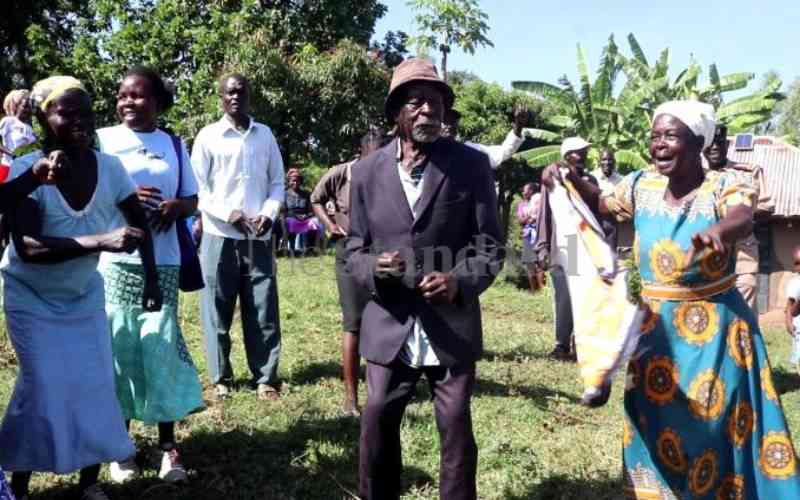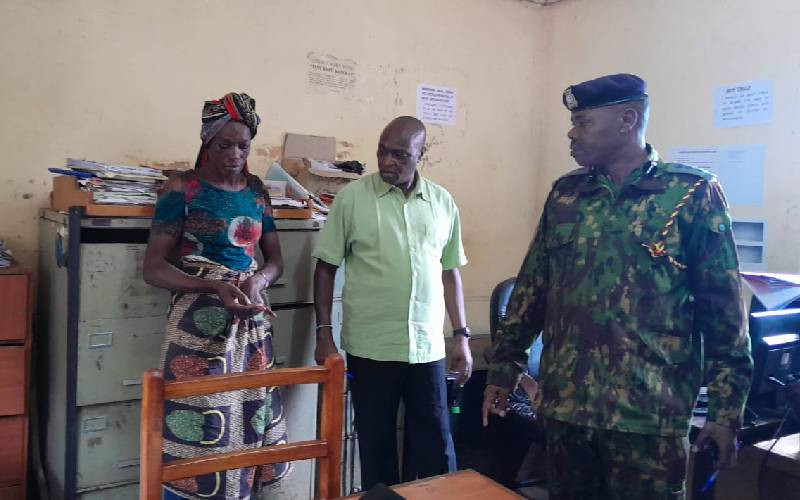Mombasa;Kenya: A 42 year old Kenyan grandmother, Ms Rehema Runya from Kilifi county has reportedly gone missing since 2012 after she went to work as a house-help in Saudi Arabia.
According to her relatives, Rehema from Kikambala division, Kilifi South constituency left in the company of four other women in March of 2012 and has never returned.
Her desperate relatives said that they have very scanty details on her whereabouts and only know that when she landed in Riyadh from Nairobi, she went to work for a Saudi family based in the city of Daaman.
'' All the women she travelled with returned back home. We have never heard from her and our efforts to speak to agents who recruited her have not been fruitful,'' Sammy Sanga Runya , a younger brother to Rehema told The Standard.
Rehema is said to have gone together with her daughter, Stella who has since relocated to Dubai instead.
Sammy said that a lady by the name of Salma and who operates from Nairobi had recruited his sister.
'' She has not been cooperating well with us when we sought her out seeking details on her whereabouts,'' Sammy said.
Last week, another Kenyan woman, Princess Ulda Opar, a Kenyan mother of one returned back to Kenya after The Standard highlighted her sufferings at the hands of her Saudi employers.
'' There is so much confusion over the fate of my sister. Our ageing father is depressed and things are not any better for the entire family whose first born daughter is missing,'' Sammy said.
Civil Society groups in Mombasa led by Muslim for Human Rights (Muhuri) Head of Rapid Response Unit, Mr Francis Auma repeated earlier calls urging the Saudi Arabian government to abolish its migrant workers sponsorship systems and allow workers in abusive situations to easily change their jobs.
''Kenyan migrant workers in Saudi Arabia – more than half the workforce fill manual, clerical and service jobs. Many suffer multiple abuses and labor exploitation sometimes amounting to slavery like conditions,'' Auma said.
The kafala or sponsorship programme ties migrant workers residency permits to sponsoring employers, whose written consent is required for workers to changes employers or leave the country.
''Employers often abuse this power in violation of Saudi Law to confiscate passports, withhold wages and force migrants to work against their will or on exploitative terms,'' Auma said.
In 2011 and 2012, Kenya, Philippines, Indonesia and Nepal imposed restrictions on their citizens, barring them from migrating to Saudi Arabia for domestic work.
The Phillipines resumed migration in October 2012 after Saudi Authorities agreed on a US $400 per month minimum wage.
Stay informed. Subscribe to our newsletter
In April 2012, the Labor Ministry proposed abolishing the Kafala system by transferring immigration sponsorship to newly created recruitment and placement agencies but later decided to retain the current system.
Auma states that to tackle Kafala related abuses, Saudi Arabia needs to amend its residency law so that a migrant worker no longer requires a sponsorship consent to change jobs or leave the country.
Rehema's family is now seeking government’s quick interventions to help trace and secure their kin and repatriate her back home.
'' We request for government's assistance to trace her even if she is already dead and bring her body back home where she belongs,'' Sammy said
Cases of Kenya being mistreated in the United Arab Emirates by their employers have been reported severally in Kenya.
 The Standard Group Plc is a
multi-media organization with investments in media platforms spanning newspaper
print operations, television, radio broadcasting, digital and online services. The
Standard Group is recognized as a leading multi-media house in Kenya with a key
influence in matters of national and international interest.
The Standard Group Plc is a
multi-media organization with investments in media platforms spanning newspaper
print operations, television, radio broadcasting, digital and online services. The
Standard Group is recognized as a leading multi-media house in Kenya with a key
influence in matters of national and international interest.
 The Standard Group Plc is a
multi-media organization with investments in media platforms spanning newspaper
print operations, television, radio broadcasting, digital and online services. The
Standard Group is recognized as a leading multi-media house in Kenya with a key
influence in matters of national and international interest.
The Standard Group Plc is a
multi-media organization with investments in media platforms spanning newspaper
print operations, television, radio broadcasting, digital and online services. The
Standard Group is recognized as a leading multi-media house in Kenya with a key
influence in matters of national and international interest.









